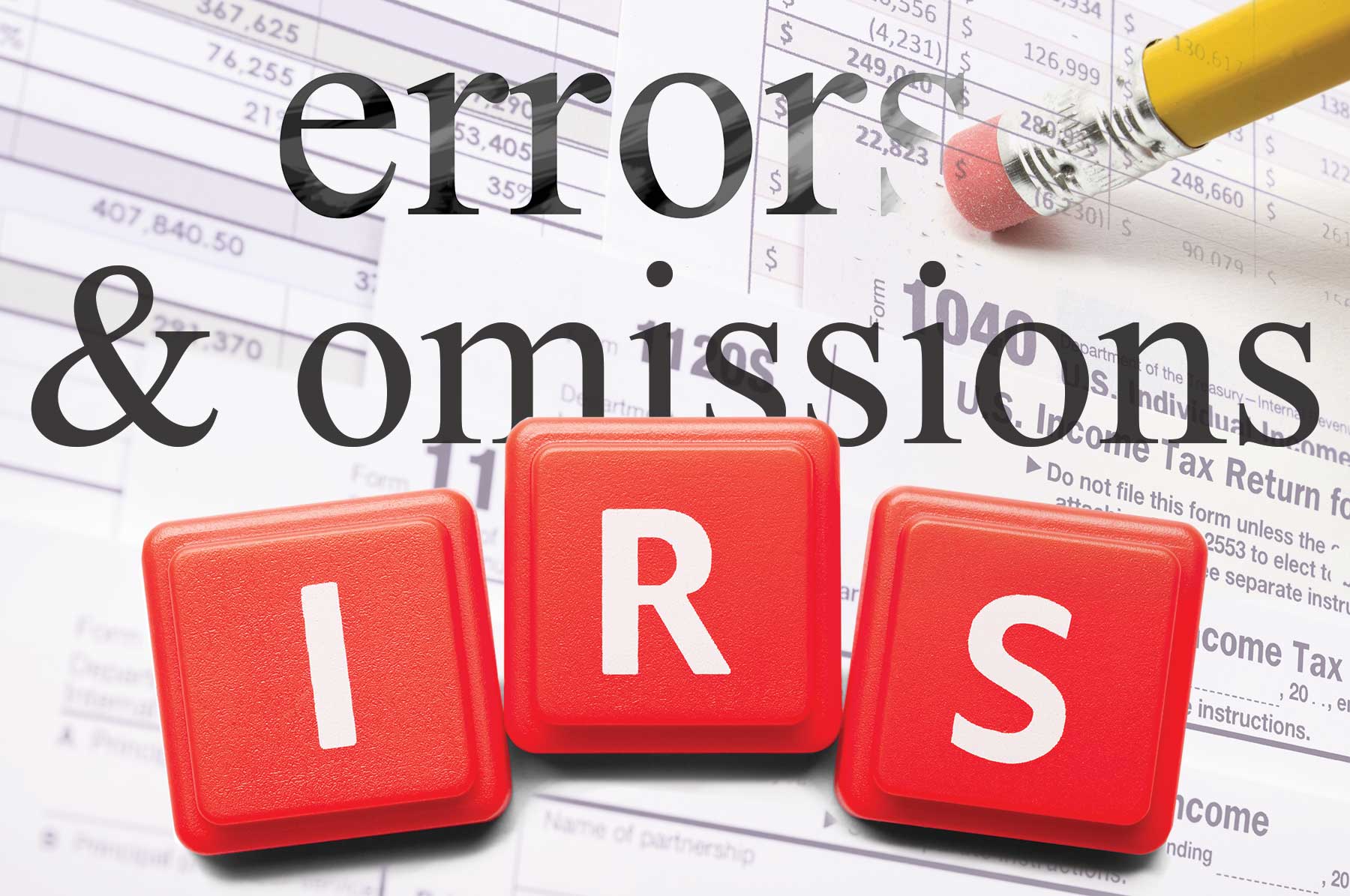
Errors and Omissions and The IRS
Avoiding costly mistakes with the Internal Revenue Service.
Errors of Omission in Accounting can lead to significant problems with the Internal Revenue Service and client relationships. An omission can occur even if you’ve provided services to a longtime business client who has experienced no year-to-year operational changes, or when completing an individual Tax Return. The omission may have nothing to do with the failure to include an entry or your lack of knowledge of the client’s business processes. Sometimes an omission can occur when filings have been fully prepared in accordance with accounting principles.
In March 2015, an accountant filed a Form 1040 extension for the 2014 tax year on behalf of a new client. The Tax Return was then filed in August 2015, with the client set to receive a federal refund of about $6,000 in addition to a small refund from the state. However, approximately four years later, the client, who had since moved away, called the accountant to advise that he had been informed by the Internal Revenue Service that they were not releasing his 2018 refund (prepared by another accountant) because the 2014 Tax Return had not been filed. It was then discovered that the Tax Return was, in fact, not filed because the accountant forgot to “press the button” in order to e-file it. And since the statue of limitations had elapsed, the Internal Revenue Service refused to issue the refund. An Accounting malpractice claim by the client followed.
The omission could have been timely corrected if the client notified the accountant earlier that he hadn’t received his 2014 refund. However, it’s best to have a system of checks and balances in place to assure that a simple oversight like this doesn’t happen. Here, the omission not only created problems with the client’s 2014 filing, but it also prevented him from receiving his 2018 refund. A quick monetary settlement was subsequently reached with the client, which included e-filing the 2014 Tax Returns. Fortunately, additional issues were averted with the Internal Revenue Service when it released the client’s 2018 refund. The omission created a significant problem for this individual client, but it could have been much worse if more money was at stake or if the accountant failed to file on behalf of a business client.
Take Away
Having a system in place where an accountant can spot-check his or her work can go a long way in preventing both small and large Accounting Professional Liability lawsuits.
Disclosure: The information presented is intended to provide guidance and is not intended as a legal interpretation of any federal, state or local laws, rules, or regulations applicable to your business. The risk management information provided is intended only to assist policyholders with recognizing possible exposures. In providing such information, Great American does not warrant that all potential exposures have been evaluated or can be controlled. It is not intended as an offer to write insurance for such exposures. The liability of Great American Insurance Group and its affiliated insurers (“Great American”) is limited to the terms, limits and conditions of the insurance policies underwritten by any of them. Scenarios are provided to illustrate possible exposures faced by your business. The facts of any situation which may actually arise, and the terms, conditions, exclusions, and limitations in any policy in effect at that time, are unique. Thus, no representation is made that any specific insurance coverage applies to the above claims scenarios.
Author: Richard Monahan
Richard Monahan is a member of the Professional Liability Division at The Great American Insurance Group in Exton, PA.
The Landy Insurance Agency is a national leader in providing non-medical, professional liability and cybercrime insurance for accountants, attorneys, and real estate professionals. John can be reached at 781‐292‐5417 or johnt@landy.com. Visit www.landy.com for more information.
If you are an insurance producer looking to register with us or obtain coverage for your client, please visit our Partner Resource Center for information.
